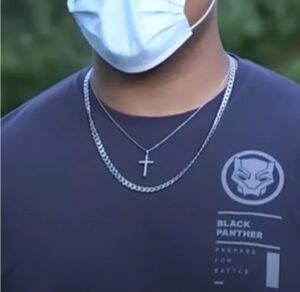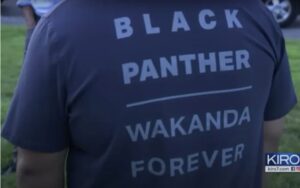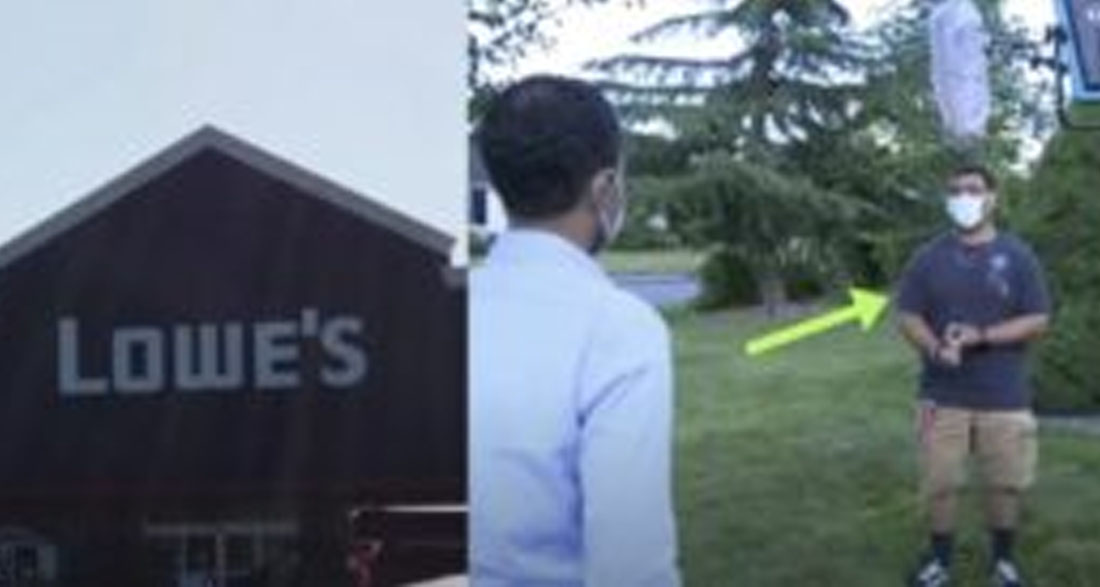Kyle Sales was just a teenager trying to make some money before heading off to college when he found himself in a situation he never expected. The young employee at a Lowe’s store in Washington was wearing a t-shirt that read “Black Panther Wakanda Forever,” a tribute to the hit Marvel movie that celebrated Black culture and heroism. Little did he know, this shirt would spark a major conflict.
One day, while working his shift, Kyle’s supervisor approached him with a serious look on her face. “A customer said your shirt is offensive and racist,” she told him firmly. Kyle was taken aback. “This is from a movie! How is this racist?” he protested, feeling his heart race with anger and confusion. He couldn’t believe he was being targeted for something that was meant to be positive.

Despite his frustration, Kyle was told he had to either change shirts or buy a new one. “I was very angry,” he later said, his voice shaking with emotion. “It just did not seem fair in light of all the things that are happening in our world right now. This isn’t racist. I shouldn’t be punished for a t-shirt from a movie.”
Wanting to keep the peace but feeling hurt, he reluctantly covered up his superhero shirt with a plain sports jersey.
But the drama didn’t end there. The next day, Kyle learned from a friend that the very customer who complained had returned to the store, causing a scene. “She came in throwing a fit, saying, ‘What happened to that kid? What was his punishment?’” he recounted, still shocked that someone would care so much about what he wore.
Kyle had only started working at Lowe’s a few months ago, right after graduating high school. He was saving up for college at Washington State University, dreaming of a bright future. But this incident took him back to painful memories of discrimination he had faced in his life. In high school, classmates had called him the N-word, and at a previous job, a manager had used the term “colored boy” to refer to him.
Kyle’s mother, Kimberly, was outraged when she heard what happened to her son. “This is pure, unadulterated discrimination,” she declared, shaking her head. “Lowe’s owes my son more than an apology.” She felt it was unacceptable for anyone to face such treatment simply for expressing themselves through clothing.

Eventually, Lowe’s responded to the incident. A spokesperson told a local CBS affiliate, “Mr. Sales should never have been asked to change his shirt, and we have apologized to him directly. We know this is a teachable moment, and we will take action to coach and train the managers at the store to help prevent this from happening again.”
They added, “Diversity and inclusion are important to our culture at Lowe’s, and we remain committed to fostering an environment where all individuals are safe, treated fairly, valued, and respected.”
As Kyle prepares for his future at Washington State University, he hopes that his experience can spark a change, encouraging others to stand up for themselves and embrace diversity in every form.
What do you think about what happened to Kyle? Was he treated fairly, or was this an overreaction? Share your thoughts in the comments below!

